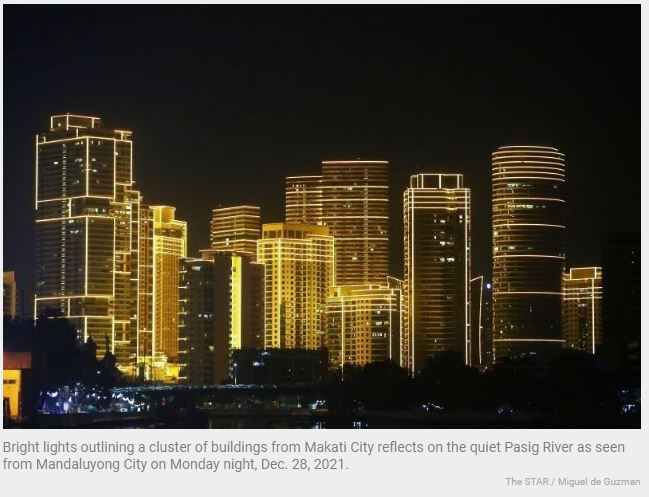Philippines: Economic growth may slow in coming quarters
MANILA, Philippines — The country’s economic growth may slow further in the coming quarters amid accelerating inflation, according to economists.
Taimur Baig, chief economist at DBS, said the country’s gross domestic product (GDP) expansion is likely to revert to the six percent range in the coming quarters, but is on track to reach seven percent this year.
“The Philippines finds growth cooling as rising inflation hurts household spending, despite opening gains,” Baig said in a report titled “Contrasting Growth Trends in Asia.”
The Philippines emerged from the pandemic-induced recession with a GDP growth of 5.7 percent last year after shrinking by 9.6 percent in 2020 as the economy stalled amid strict COVID quarantine and lockdown protocols.
The growth picked up to 7.8 percent in the first half despite the disappointing 7.4-percent expansion in the second quarter, slower than the 8.2-percent growth booked in the first quarter.
“The economy is on track to grow by seven percent this year, but the post-pandemic boom is slowing and growth will likely revert to the trend rate of six percent in the coming quarters,” Baig said.
While the second quarter GDP growth softened, Baig said the expansion was still higher than the pre-pandemic trend of 6.2 percent.
According to Baig, this implies that the economy is still in a decent position to handle further tightening by the Bangko Sentral ng Pilipinas (BSP).
The Singaporean bank sees inflation accelerating to five percent this year, exceeding the BSP’s two to four percent target before easing to four percent next year.
DBS also expects the Monetary Board to further raise interest rates by another 75 basis points this year, bringing the benchmark rate to 4.50 percent from the current 3.75 percent.
The BSP has so far raised interest rates by 175 basis points this year to curb rising inflationary pressures after slashing key policy rates by 200 basis points to an all-time low of two percent in 2020 as part of its COVID response measures.
Meanwhile, New York-based GlobalSource Partners lowered its GDP growth forecast for the Philippines to 6.3 instead of 6.8 percent for this year and to five instead of 5.5 percent for next year due to external headwinds.
Former finance undersecretary Romeo Bernardo and Christine Tang, country analysts at GlobalSource, said it has been a slow crawl out of the pandemic for the Philippine economy.
“The first half output has surpassed the pre-pandemic level, but the economy has emerged only to face a gloomy world economic outlook, with elevated commodity prices, tighter financial conditions and slowing global growth. The government lacks the policy space to counter these external headwinds, with monetary policy constrained by rising inflation, aggressive US interest rate increases, and foreign reserve losses due in part to ballooning imports caused by high import prices,” Bernardo and Tang said.
According to the think tank, the credibility of the new administration’s economic recovery program rests mainly on the good name of the economic managers and the team’s readiness to engage with the private sector.
“We are nevertheless mindful of the medium-term potential upshift in the country’s growth trajectory from the reforms this administration has promised to undertake, including in the agriculture, mining and energy sectors, as well as in increasing inclusivity, job quality and overall productivity from digitalization,” it said.
The revised GDP growth forecast is lower than the target of 6.5 to 7.5 percent for 2022 and 6.5 to eight percent for 2023 penned by economic managers through the Cabinet-level Development Budget Coordination Committee.
Source: https://www.philstar.com/business/2022/09/06/2207591/economic-growth-may-slow-coming-quarters


 Thailand
Thailand




